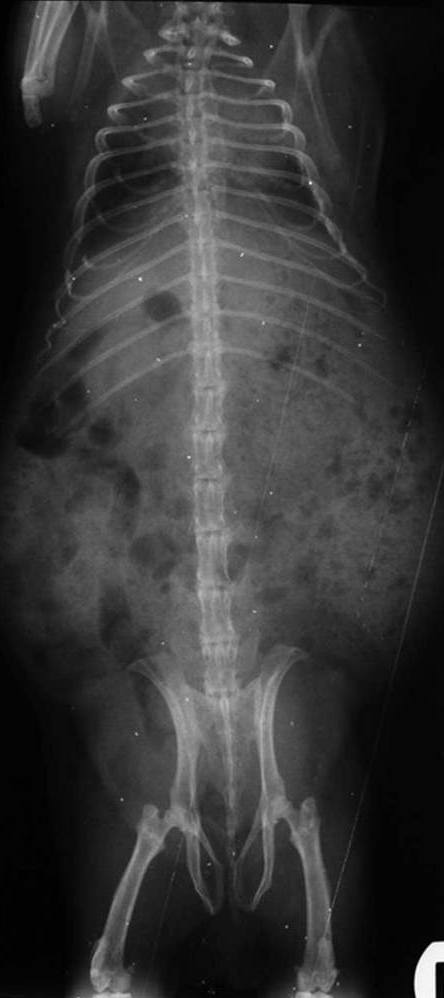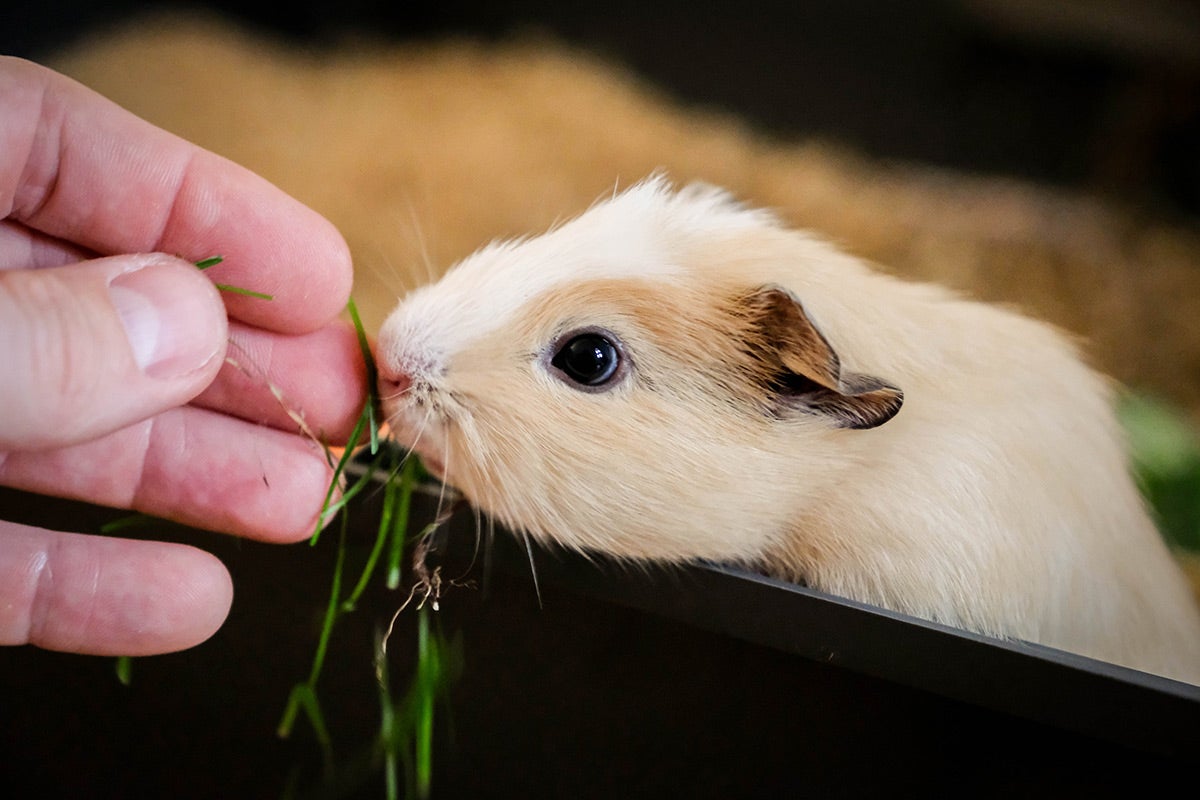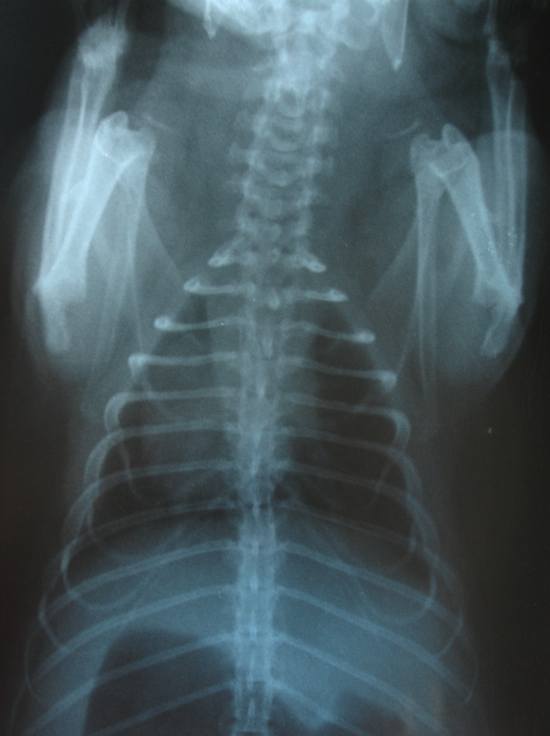The guinea pig, a cherished pet around the world, is a creature of fascinating complexity. Beneath their fluffy exteriors lies a delicate, intricate biological system, with a key component being the heart. Understanding guinea pig heart rates is crucial to their health and well-being. This article will dive into the details of their cardiovascular system, exploring the normal range of heart rates, factors influencing them, and recognizing potential signs of heart health issues.
Contents
- 1 A Rhythmic Engine: The Guinea Pig Heart
- 2 Factors Influencing Guinea Pig Heart Rate: Understanding the Variables
- 3 Detecting Abnormal Heart Rates in Guinea Pigs: Signs and Symptoms
- 4 Measuring Guinea Pig Heart Rate: Techniques and Tools
- 5 Causes of Abnormal Heart Rate in Guinea Pigs: From Stress to Disease
- 6 Veterinary Care for Guinea Pigs with Heart Rate Issues: Diagnosis and Treatment
- 7 Conclusion
A Rhythmic Engine: The Guinea Pig Heart

The heart of a guinea pig, although small, is a powerful engine that tirelessly pumps blood throughout the body. This tiny organ, roughly the size of a walnut, is responsible for delivering oxygen-rich blood to every cell, ensuring vital functions like breathing, movement, and digestion. Like all mammals, guinea pigs have a four-chambered heart, composed of two upper chambers (atria) and two lower chambers (ventricles). The atria receive blood from the body and lungs, while the ventricles pump the blood out to the rest of the body. Each heartbeat represents a complete cycle of blood flow, starting with the atria filling and culminating in the ventricles emptying.
Factors Influencing Guinea Pig Heart Rate: Understanding the Variables
As with any living organism, guinea pig heart rate can vary depending on various factors. These can include age, gender, physical activity, stress levels, and underlying health conditions. In this section, we will explore each of these variables in more detail to understand their impact on guinea pig heart rate.
Age
Age is one of the primary factors that can influence guinea pig heart rate. As they grow older, it is common for guinea pigs to experience a decrease in their resting heart rate. This is because their hearts become more efficient with age, requiring fewer beats to pump blood throughout the body. However, it is important to note that older guinea pigs may also be more susceptible to heart-related health issues, which can affect their heart rate.
Gender
There is a slight difference in heart rate between male and female guinea pigs. Male guinea pigs tend to have slightly higher heart rates than females due to their larger size and higher muscle mass. This means that they require more oxygen-rich blood to support their bodies, resulting in a faster heart rate.
Physical Activity
Similar to humans, physical activity can significantly impact guinea pig heart rate. When engaged in high-intensity activities such as running or playing, their heart rate will increase to meet the demands of their bodies. On the other hand, during periods of rest, their heart rate will decrease. Monitoring your guinea pig’s heart rate during different levels of activity can provide valuable insights into their overall cardiovascular health.
Stress Levels
Stress can cause a significant increase in guinea pig heart rate. This can occur in situations such as being handled for the first time or encountering new environments. During these times, adrenaline is released, causing the heart rate to spike. While this increase in heart rate is normal in short bursts, prolonged exposure to stress can lead to chronic heart rate elevation, which can be harmful to your guinea pig’s health.
Underlying Health Conditions
Underlying health conditions can also affect guinea pig heart rate. Some common health issues that can impact heart rate include respiratory infections, dental problems, and obesity. These conditions can put added strain on the heart, leading to an increase in heart rate. If you notice changes in your guinea pig’s heart rate, it is crucial to consult with a veterinarian to rule out any underlying health concerns.
Detecting Abnormal Heart Rates in Guinea Pigs: Signs and Symptoms

Monitoring your guinea pig’s heart rate can provide valuable insights into their overall health. While a range of 150-300 bpm is considered normal for guinea pigs, any significant deviations from this range could be a sign of an underlying health issue. Some common signs and symptoms to watch out for include:
- Rapid or irregular heart rate
- Difficulty breathing
- Lethargy
- Loss of appetite
- Weight loss
- Weakness or collapse
If you notice any of these symptoms in your guinea pig, it is essential to consult with a veterinarian immediately. Early detection and treatment of heart-related issues can greatly improve the chances of successful treatment and recovery for your pet.
Measuring Guinea Pig Heart Rate: Techniques and Tools
Measuring your guinea pig’s heart rate can be done at home using simple techniques and tools. One of the most accurate ways to measure heart rate is through auscultation, which involves using a stethoscope to listen to the heartbeat directly. Another method is to use a pulse oximeter, which measures heart rate by detecting the pulse in the peripheral blood vessels using infrared light.
To measure your guinea pig’s heart rate at home, follow these steps:
- Ensure your guinea pig is calm and relaxed.
- Place your guinea pig on a flat surface, such as a table or your lap.
- Using a stethoscope or pulse oximeter, locate the heartbeats in the chest area, just behind the front legs.
- Count the number of beats in one minute or use a timer to count for 15 seconds and multiply the number of beats by four to get the bpm.
- Monitor your guinea pig’s heart rate regularly and keep track of any changes over time.
Causes of Abnormal Heart Rate in Guinea Pigs: From Stress to Disease
As mentioned earlier, various factors can influence guinea pig heart rate. However, some underlying health conditions can also cause an abnormal heart rate. Here are some potential causes of an abnormal heart rate in guinea pigs:
- Stress or anxiety
- Respiratory infections
- Dental problems
- Obesity
- Heart disease or failure
- Anemia
- Tumors
If you notice any changes in your guinea pig’s heart rate, it is essential to consult with a veterinarian for proper diagnosis and treatment.
Veterinary Care for Guinea Pigs with Heart Rate Issues: Diagnosis and Treatment
If your guinea pig is experiencing an abnormal heart rate, it is crucial to seek veterinary care as soon as possible. A veterinarian will perform a physical examination and may recommend diagnostic tests such as X-rays and blood work to determine the underlying cause of the issue. Treatment will depend on the specific condition diagnosed and may include medication, dietary changes, and lifestyle modifications.
As a pet owner, it is also essential to provide your guinea pig with a clean and stress-free environment to support their cardiovascular health. Regular check-ups and preventive care can also help detect any potential issues early on and prevent them from developing into more severe conditions.
Conclusion
In conclusion, understanding guinea pig heart rates is vital for the overall health and well-being of these adorable creatures. Factors such as age, gender, physical activity, stress levels, and underlying health conditions can all influence heart rate. Monitoring your guinea pig’s heart rate and recognizing potential signs of heart health issues can help ensure early detection and treatment. By providing proper care and seeking veterinary attention when needed, we can ensure our tiny titans’ hearts beat strong and healthy for years to come.
